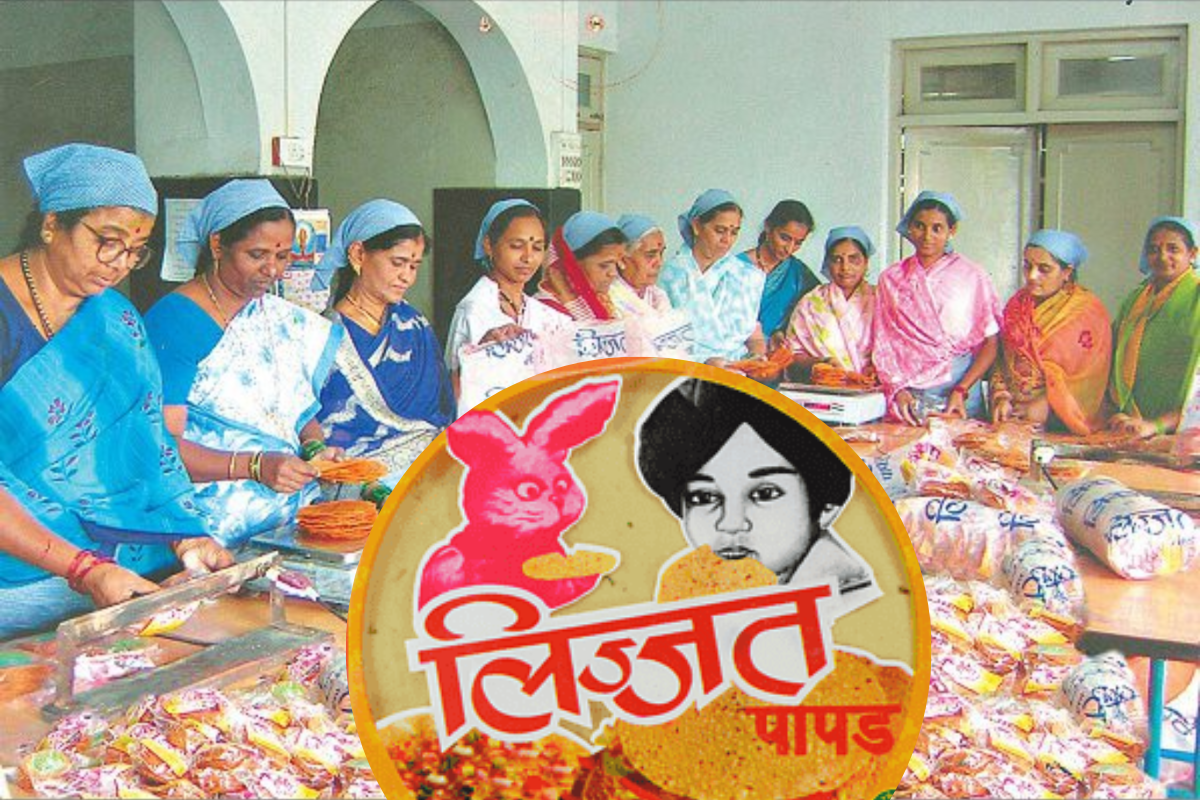My Blog
The Incredible Story of Lijjat Papad: From 80 Rupees to a 1600 Crore Empire

The story of Shri Mahila Griha Udyog Lijjat Papad is nothing short of extraordinary. This homegrown brand, which started with just 80 rupees in capital, now boasts an empire worth 1600 crores, spanning 69 branches and employing over 42,000 people. What makes this company so special is not just its growth, but its unique business philosophies that resemble those of global giants like Starbucks and Apple.
The Genesis of Lijjat Papad
In the late 1950s, India was still a developing country with literacy considered a luxury. Only 8% of women were literate, and societal norms restricted their ability to work outside the home. In 1959, seven women from Mumbai, with no business background or significant education, came together with a vision. With just 80 rupees provided by a social worker, they began making and selling papads.
Empowerment Through Collective Ownership
From the outset, the founders decided that the primary goal of Lijjat Papad was not to make money but to empower women. They implemented a model of collective ownership, where each woman who joined the business became a part-owner. This philosophy created a sense of belonging and motivation among the women, referred to as “Lijjat Sisters,” ensuring profits and losses were shared equally.
This model is similar to Starbucks’ approach, where employees are considered partners and are given stock options, fostering a sense of ownership and dedication to the company’s success.
Building a Robust Supply Chain
The second phase of Lijjat Papad’s growth involved creating a cost-effective and efficient supply chain. Here’s how it worked:
- Central Dough Preparation: Flour arrived at a central location where the dough was prepared.
- Home-Based Production: Women collected the dough, made papads at home, and delivered them the next day.
- Quality Control: Supervisors conducted surprise visits to ensure hygiene and quality standards were met.
- Profit Sharing: Profits were shared among the members, and losses were borne collectively.
Sticking to Core Values: The Key to Longevity
Lijjat Papad has never deviated from its core values, adhering to the principle of Sarvodhya (Progress for all). Even as the company expanded to 57 branches and 42,000 employees, it remained committed to empowering women and providing them with a better quality of life.
Unlike many corporations that prioritize profits over people, Lijjat Papad ensures that technological advancements do not displace workers. Extra profits are used to sponsor the education of employees’ children, ensuring the next generation has better opportunities.
Lessons from Lijjat Papad’s Success
- Empowerment and Inclusion: By making every employee a stakeholder, Lijjat Papad created a motivated and dedicated workforce.
- Sustainable Growth: The company’s supply chain model ensured cost-efficiency and quality without compromising on the well-being of its workers.
- Staying True to Core Values: Commitment to their founding principles has enabled Lijjat Papad to thrive for over six decades.
Conclusion
Lijjat Papad’s journey from a small initiative with 80 rupees to a 1600 crore business empire is a testament to the power of collective ownership, empowerment, and unwavering commitment to core values. This story serves as an inspiration for entrepreneurs and businesses worldwide, demonstrating that with the right principles and dedication, even the most modest beginnings can lead to extraordinary success.
Lijjat Papad stands as a shining example of how business can be a force for good, empowering individuals and transforming communities while achieving remarkable growth and success.

October 19, 2025
Wow, amazing weblog layout! How lengthy have you eveer been running a blog for?
you made running a blog look easy. The overall look of your web site is magnificent, ass well as the content!
Visit my webpage https://Casinoslotprinciples.Blogspot.com/2021/12/casino-slots-nuances-games-and-choosing.html